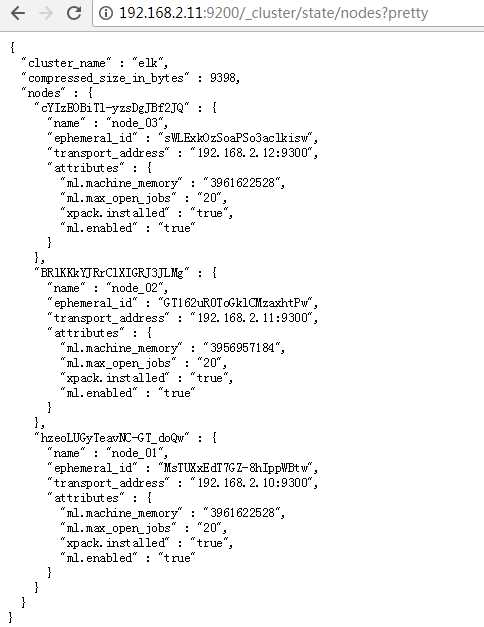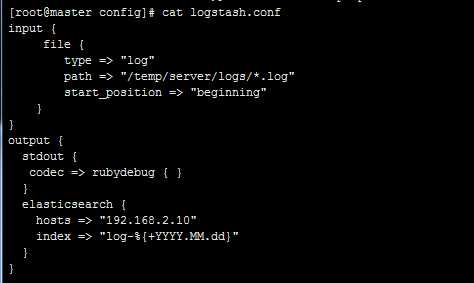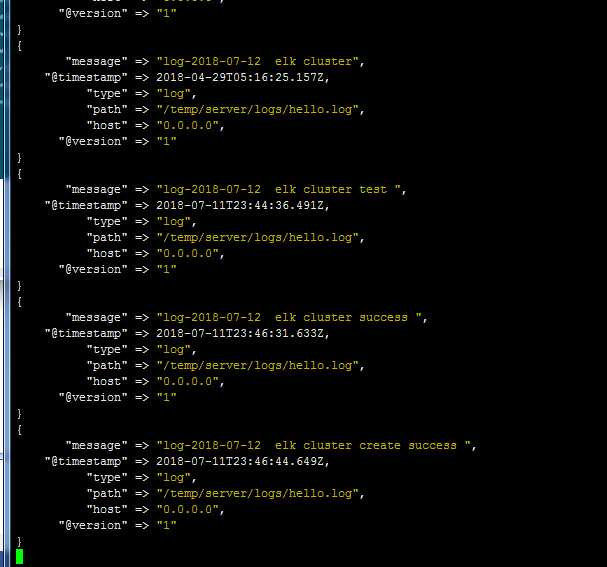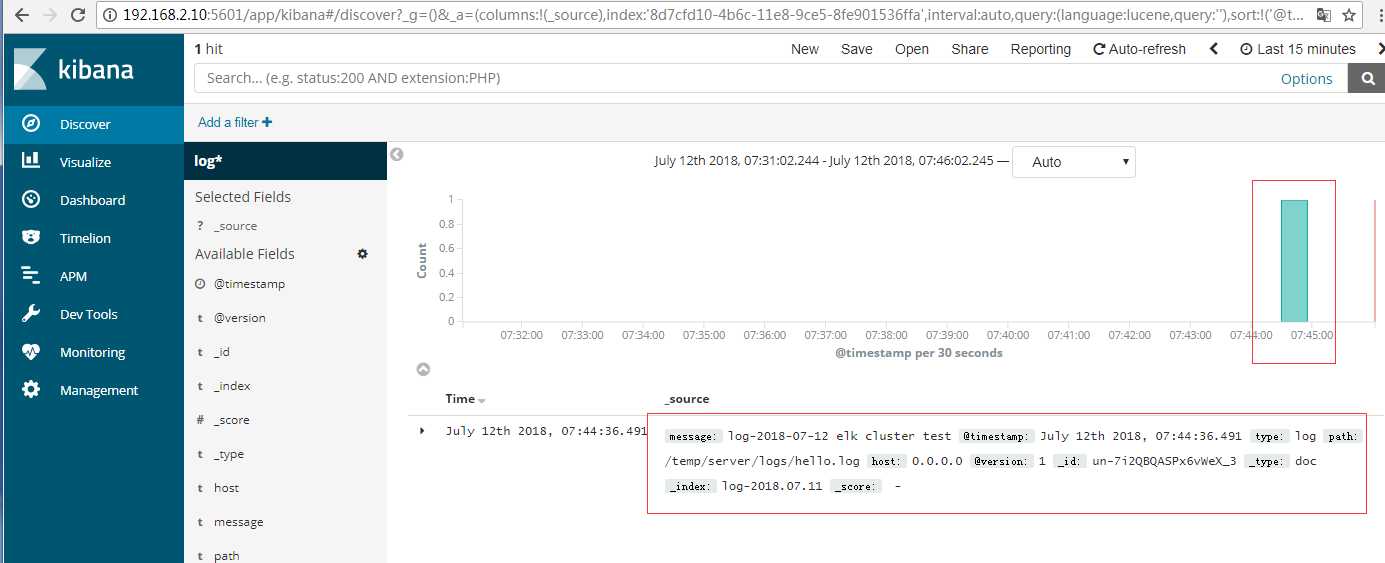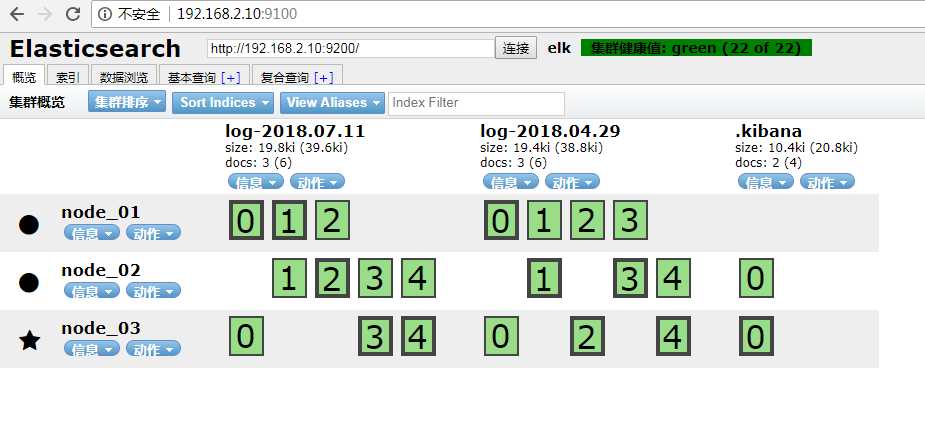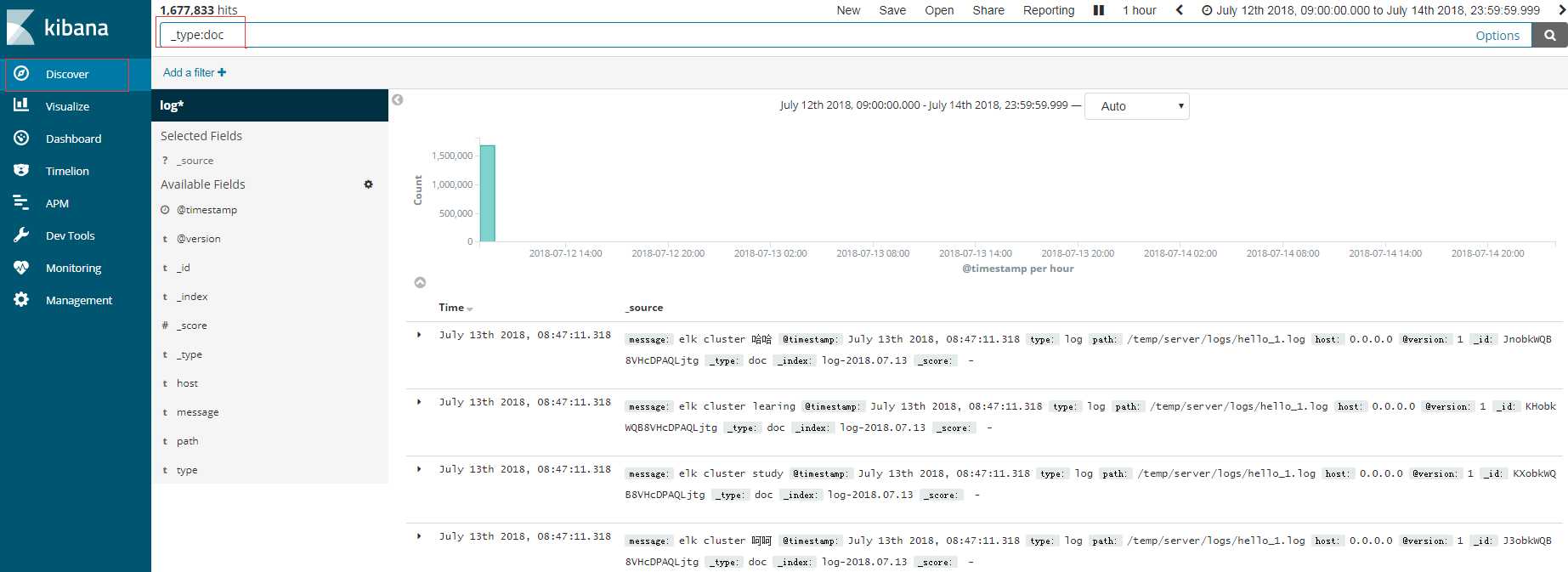标签:error: 文本 tps names cors 授权 没有 支持 技术分享
版本elk均为6.3+centos7.0
准备工作
官网下载elk6.3的linux环境的压缩包,sftp上传
下载对应的head插件sftp上传到指定目录
tar.gz文件解压
tar -zxvf filename -C dirname
zip文件
安装zip软件
unzip filename -d dirname
1.root用户不能启动elasticsearch
2.创建用户
useradd fan
修改密码
passwd fan
3.给用户root权限(测试图简单,线上请自行建组并授权)
赋予用户fan root权限
chmod -v u+w /etc/sudoers
visudo
在root那行添加如下
## Allow root to run any commands anywhere
root ALL=(ALL) ALL
fan ALL=(ALL) ALL
4.给目录授权 chmod 777 -R dir
5.修改配置文件limits.conf
vim /etc/security/limits.conf
#* soft core 0
#* hard rss 10000
#@student hard nproc 20
#@faculty soft nproc 20
#@faculty hard nproc 50
#ftp hard nproc 0
#@student - maxlogins 4
fan hard nofile 65536
fan soft nofile 65536
"/etc/security/limits.conf" 62L, 2465C 已写入
fan为启动用户,自己根据自己用户名更改,不改改配置会报如下错误
[2018-04-29T07:10:31,207][INFO ][o.e.t.TransportService ] [node_01] publish_address {192.168.2.10:9300}, bound_addresses {[::]:9300}
[2018-04-29T07:10:31,222][INFO ][o.e.b.BootstrapChecks ] [node_01] bound or publishing to a non-loopback address, enforcing bootstrap checks
ERROR: [2] bootstrap checks failed
[1]: max file descriptors [4096] for elasticsearch process is too low, increase to at least [65536]
[2]: max virtual memory areas vm.max_map_count [65530] is too low, increase to at least [262144]
6.修改配置文件sysctl.conf
vi /etc/sysctl.conf
文件末尾添加
vm.max_map_count=655360
否则启动报如下错误
[2018-04-29T07:19:56,208][INFO ][o.e.b.BootstrapChecks ] [node_01] bound or publishing to a non-loopback address, enforcing bootstrap checks
ERROR: [1] bootstrap checks failed
[1]: max virtual memory areas vm.max_map_count [65530] is too low, increase to at least [262144]
7.修改elasticsearch配置文件elasticsearch.yml
#cluster.name: my-application
cluster.name: elk
#
# ------------------------------------ Node ------------------------------------
#
# Use a descriptive name for the node:
#
node.name: node_01
#指定该节点是否有资格被选举成为node,默认是true,es是默认集群中的第一台机器为master,如果这台机挂了就会重新选举
node.master: true
#指定该节点是否存储索引数据,默认为true
node.data: true
#设置这个参数来保证集群中的节点可以知道其它N个有master资格的节点。默认为1,对于大的集群来说,可以设置大一点的值(2-4)
discovery.zen.minimum_master_nodes: 1
#设置节点间交互的tcp端口,默认是9300
transport.tcp.port: 9300
#
# Add custom attributes to the node:
#
#node.attr.rack: r1
#
# ----------------------------------- Paths ------------------------------------
#
# Path to directory where to store the data (separate multiple locations by comma):
#
#path.data: /path/to/data
path.data: /path/to/data
#
# Path to log files:
#
#path.logs: /path/to/logs
path.logs: /path/to/logs
#
# ----------------------------------- Memory -----------------------------------
#
# Lock the memory on startup:
#
#bootstrap.memory_lock: true
#
# Make sure that the heap size is set to about half the memory available
# on the system and that the owner of the process is allowed to use this
# limit.
#
# Elasticsearch performs poorly when the system is swapping the memory.
#
# ---------------------------------- Network -----------------------------------
#
# Set the bind address to a specific IP (IPv4 or IPv6):
#
#network.host: 192.168.0.1
network.host: 192.168.2.10
#
# Set a custom port for HTTP:
#
#http.port: 9200
http.port: 9200
#
# For more information, consult the network module documentation.
#
# --------------------------------- Discovery ----------------------------------
#
# Pass an initial list of hosts to perform discovery when new node is started:
# The default list of hosts is ["127.0.0.1", "[::1]"]
#
#discovery.zen.ping.unicast.hosts: ["host1", "host2"]
discovery.zen.ping.unicast.hosts: ["192.168.2.10", "192.168.2.11", "192.168.2.12"]
#
# Prevent the "split brain" by configuring the majority of nodes (total number of master-eligible nodes / 2 + 1):
#
#discovery.zen.minimum_master_nodes:
#
# For more information, consult the zen discovery module documentation.
#
# ---------------------------------- Gateway -----------------------------------
#
# Block initial recovery after a full cluster restart until N nodes are started:
#
#gateway.recover_after_nodes: 3
#
# For more information, consult the gateway module documentation.
#
# ---------------------------------- Various -----------------------------------
#
# Require explicit names when deleting indices:
#
#action.destructive_requires_name: true
#
#head插件
http.cors.enabled: true
http.cors.allow-origin: "*"
最后两行开始不要加,后面配置head插件后再添加
8.elasticsearch启动成功
[fan@master elasticsearch-6.3.0]$ jps
114672 Jps
114595 Elasticsearch
elasticsearch.yml
9.关闭防火墙
“failed to obtain node locks”
jps
将elasticsearch kill
elasticsearch 没有到主机的路由
关闭防火墙
10.logstash 同elasticsearch解压,然后修改配置文件
logstash 采集后台
logstash.conf
自己根据实际情况更改input中的path和output中的host index
11.添加日志文件测试
logstash 后台会有添加记录
12.下载解压kibana 同上面elasticsearch
修改conf 下 kibana.yml添加elasticsearch地址,添加一个即可
elasticsearch.url: "http://192.168.2.10:9200"
然后后台启动bin目录下 nohup ./kibana &
13.head安装
前提条件
上面地址下载master.zip上传解压
也可以命令:wget https://github.com/mobz/elasticsearch-head/archive/master.zip
我是下载的master.zip所以要解压
安装zip软件
yum install -y zip unzip
解压master.zip
unzip master.zip -d /srv/
b.node下载安装
下载后解压同elasticsearch
配置环境变量
vim /etc/profile
export NODE_HOME=/srv/node-v4.4.7-linux-x64
export PATH=$JAVA_HOME/bin:$HADOOP_HOME/bin:$NODE_HOME/bin:$PATH
生效环境变量source /etc/profile
npm install -g grunt-cli
[root@master elasticsearch-head-master]# grunt -version
grunt-cli v1.2.0
修改 Gruntfile.js
vim Gruntfile.js
connect: {
server: {
options: {
port: 9100,
base: ‘.‘,
keepalive: true,
hostname: ‘*‘
}
}
}
npm install
启动head插件
grunt server
14.访问kibana
我这边直接拷贝了一个日志文件放到了前面logstash中配置的路径下
elk搭建完毕
Solr和Es区别
Solr:查询多且查询的时候更新较少。支持word, pdf等富文本索引开发者社区完善,稳定性高一点。但是笨重
1Es:一边查一边更新多系统。只支持ison格式。轻便,集群部署简单。实时性高。
由于环境不同大家可能遇到其他的问题,有问题可以加入qq群:513650703共同交流学习
elk6.3 centos集群搭建 head插件安装
标签:error: 文本 tps names cors 授权 没有 支持 技术分享
原文地址:https://www.cnblogs.com/javashare/p/9380156.html









